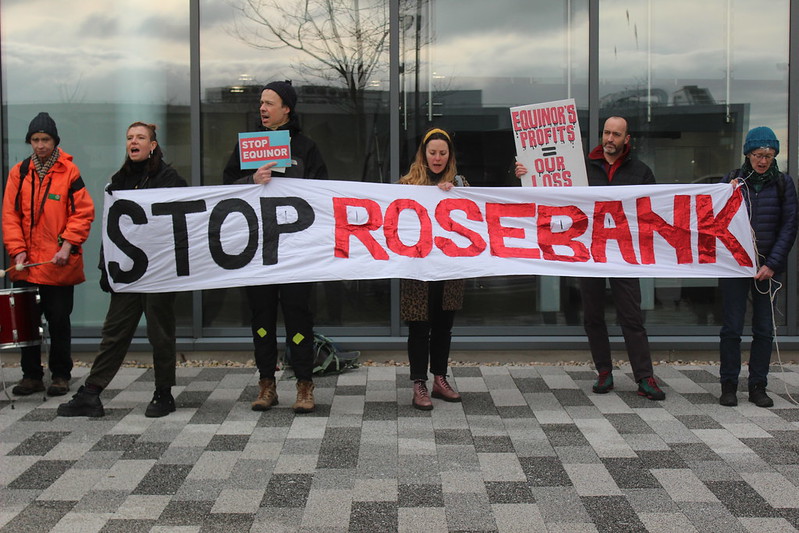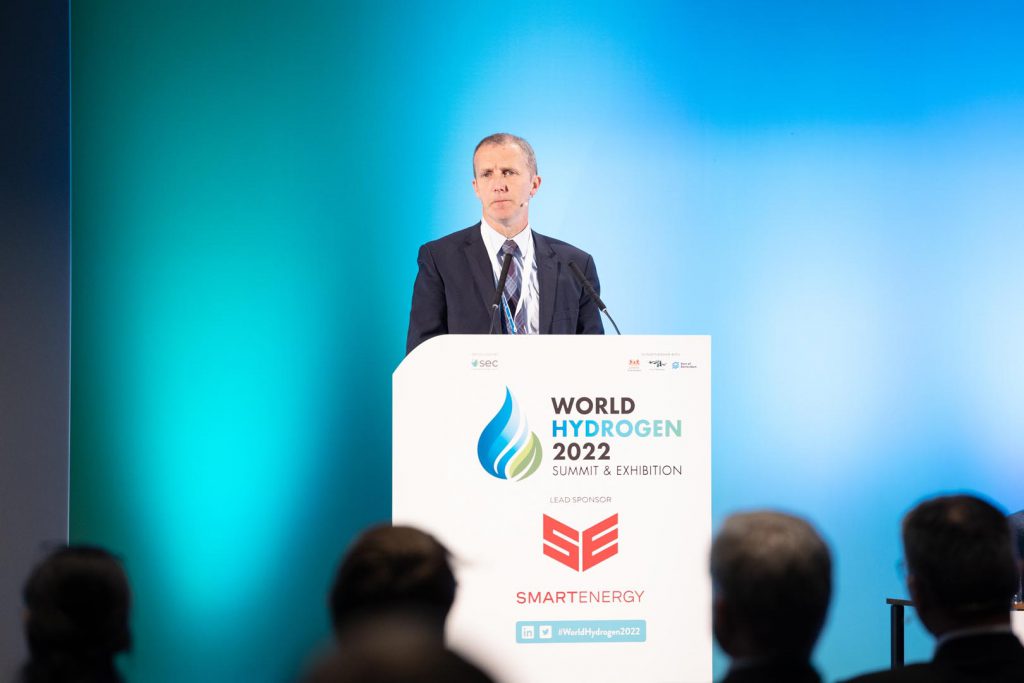
How much influence does the fossil fuel industry have on the Scottish Government?
Quite a lot, it turns out.
Climate science and energy experts in the International Energy Agency, Intergovernmental Panel on Climate Change, International Institute for Sustainable Development and more have long been clear that burning fossil fuels is driving the climate crisis.
The devastating impacts of this crisis also could not be clearer. Just in the last few weeks extreme heatwaves have devastated Europe, wildfires have raged across Canada, and ocean temperatures have caused tens of thousands of fish to suffocate off the coast of Texas.
If we want to halt climate breakdown, we have to urgently phase out the production and use of oil, coal and gas.
So why aren’t our governments doing more to stop the extraction and burning of fossil fuels?
Our new research has trawled through the Scottish Parliament’s Lobbying Register as well as Ministerial Diaries to uncover the extent of the lobbying that the fossil fuel industry undertakes in the Scottish Government and Parliament.
The results are alarming: from 2018 to the end of 2022 representatives of the fossil fuel industry met with ministers in the Scottish Government over 200 times – an average of just under once a week.

The ministers that were lobbied the most were Michael Matheson and Paul Wheelhouse, respectively Cabinet Secretary for Net Zero, Energy and Transport and Minister for Energy, Connectivity and the Islands during this time period. Each clocked up 39 meetings with representatives of the fossil fuel industry.
The most active lobbyists were SSE (62 meetings), BP (32 meetings) and oil industry umbrella group Offshore Energies UK (22 meetings).
Why is fossil fuel lobbying harmful?
Fossil fuel companies have a vested interest in maintaining the status quo and continuing their hugely profitable business as usual. We can’t forget that leading global oil giants made $200 billion in profit last year as household bills soared. These companies have long enjoyed the support – both political and financial – of the Scottish Government in order to expand their drilling activities.
It’s clear that the fossil fuel industry is still hell-bent on drilling for every drop of oil and gas that they can. The evidence of this can be seen from Shell backing out of its commitment to reduce emissions and Equinor planning on drilling the biggest undeveloped oil field in the North Sea at Rosebank.

Slowly, the Scottish Government had been making progress towards a more active stance against new oil and gas. In 2021 they announced that Scotland would drop the policy known as ‘Maximising Economic Recovery’ for oil and gas and no longer support the industry to drill for every single last drop of oil and gas in the North Sea.
The most recent Energy Strategy, the first draft of which was published in January this year, follows up this commitment by consulting on a presumption against new oil and gas licensing. If this progress can be made even with the excessive lobbying of the fossil fuel industry, what could be possible if fossil fuel lobbyists were held back from influencing decision making about the transition?
Decisions on climate policy and the energy transition should be made with the interests of ordinary people and workers at the centre, not the interests of multi-billion pound corporations.
What have the lobbyists been talking to Government about?
Each of the entries in the lobbying register contains a brief purpose of the meeting. This gives an indication of what the companies were pushing in their conversations with MSPs. From this we were able to calculate the number of meetings where issues such as controversial hydrogen technology was discussed.

104 meetings took place between the hydrogen lobby and MSPs, 79 of which were with members of the Scottish Government. It is notable that the companies lobbying the most on hydrogen were well-known fossil fuel companies, with BP and Shell clocking up 17 and 9 meetings with MSPs respectively on hydrogen.
Hydrogen technology would prolong the lifetime of the fossil fuel industry, as the production of blue hydrogen requires fossil fuels, so these companies are keen for the technology to take off. Ministers have so far pledged £100million to support the growth of hydrogen in Scotland.
The largest single lobbying event was by Ivan McKee MSP, Minister for Business, Trade, Tourism and Enterprise, who hosted a ‘Hydrogen Dinner’ at Edinburgh Castle during COP26, where 52 hydrogen industry representatives were wined and dined. Lobbyists invited to that event included BP, INEOS, Shell, Wood Group and Offshore Energies UK.
Lobbyists pushing Rosebank oil field to North East MSPs
Another example of the insidious influence of fossil fuel lobbying is the fact that Equinor, the company behind the controversial Rosebank oil field, sought meetings with 11 MSPs, including 5 with Government ministers) in the months leading up to their announcement in August 2022 that they would push ahead with Rosebank.
The MSPs that Equinor met with represented the North-East region where Equinor’s Aberdeen office is located, and Shetland, the closest land to the Rosebank site. None of the MSPs lobbied by Equinor have opposed the Rosebank development in any way, despite it being the largest undeveloped oil field in the North Sea, with the potential to produce as much CO2 emissions as the combined annual emissions of 28 low-income countries.
New fossil fuel projects face fierce public opposition because people know the only real beneficiaries will be the companies behind him. That’s why companies use their resources and power to persuade politicians to go against what is in the best interests of the people they represent.
International movement against fossil fuels
There has been a growing movement internationally to exclude polluters from decision making spaces on climate. The Polluters Out coalition has been calling for a ban on fossil fuel lobbyists from UN climate spaces such as COP, calling for the most affected people and areas to be the voices that are heard instead.
During COP26, there was also a UK based coalition calling for fossil fuel companies to be excluded from the conference, as well as a Glasgow Calls Out Polluters which was a grassroots group who raised awareness of the prominence of the fossil fuel industry inside COP26.
The need to curb the influence of fossil fuel companies on climate policy has drawn parallels to the World Health Organisation’s decision in 2003 to ban tobacco companies from decision making spaces on global health. It makes sense that corporate interests should not be allowed to influence decisions that will affect their business.
What should happen now with lobbyists?
Following this research, we are calling for the Scottish Government to cut ties with the fossil fuel industry. In keeping with the Fossil Free Parliament UK campaign, we urge the Scottish Government to:
BLOCK THE MONEY PIPELINE.
Refuse all financial support from fossil fuel industry representatives.
REJECT THE INVITATIONS.
Reject invitations to any event run by the fossil fuel industry.
REMOVE THE SEAT AT THE TABLE.
End lobbying meetings with the fossil fuel industry unless to discuss its phase out.
DIVEST THE PENSION FUND.
Divest the MSP Pension Fund from fossil fuels ASAP and reinvest in ethical alternatives.
BREAK THE REVOLVING DOOR.
Prevent politicians from taking fossil fuel industry jobs and fossil fuel representatives from taking on political roles.
It will be a major challenge to free our politics from big polluters but we know that it must happen if we are to secure the climate action we need.
By becoming a member of Friends of the Earth Scotland you can support our work every day.
